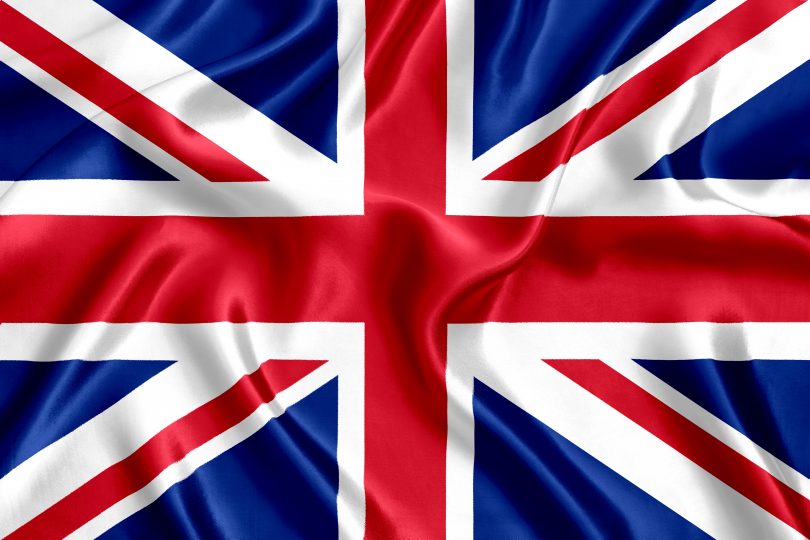The world of drugs is constantly shifting and changing. It seems like, finally, governments are beginning to open their minds to the many magical benefits of drugs, and are no longer being blinded by the potential recreational uses. The truth is, almost all drugs that people may buy from street dealers or off the dark web – are also used daily in medical practices.
This is the case with heroin, NOS, cocaine, MDMA and ketamine. What some of these drugs offer are quick relief from mental and physical pains, which usually prescribed medicines do not have the capability for. This is the situation with esketamine. Since 2019, esketamine has been medically legal in the UK due to its proven benefits for treating depression. But how has it been going? How easily accessible is it? And, more importantly, what even is esketamine? The UK isn’t championed by the rest of the world for their open-drug policies, but perhaps this is a start.
Ketamine and esketamine therapy are all the rage, but they’re still not as easily accessible as cannabis. Fortunately, there has been more focus on these compounds in recent years and the market is poised to explode in the very near future. Remember to subscribe to The Psychedelics Weekly Newsletter for more articles like this one. And save big on Delta 8, Delta 9 THC, Delta-10, THCO, THCV, THCP & HHC products by checking out our “Best-of” lists!
What is Esketamine?
Esketamine is an isomer of ketamine, which essentially means that it has a very similar chemical structure, despite a few certain atoms. For those of you who aren’t aware, ketamine is both a popular recreational and medical drug. Ketamine has been found to be an anesthetic and anti-depressant and was actually used to treat injured Vietnam soldiers. Not only that, but Ketamine is often referred to as a ‘horse tranquiliser’ as it’s often used in veterinary practices to anaesthetize bigger animals. Ketamine has also been found to have euphoric effects, which is why it’s often used as a party drug, and is also why it’s not being further considered as a potential antidepressant. This is why Esketamine has not been created. Esketamine is actually a more potent version of ketamine.
“…blocks N-methyl-D-aspartate (NMDA) receptors and interrupts the association pathways of the brain, resulting in dissociative anaesthesia and analgesia and in restoration of neural pathways regulating mood and emotional behaviour.”
Now, this might sound a little bit scientific, but actually esketamine works quite simply. The drug is believed to act on a brain chemical called glutamate, which is thought to restore connections between brain cells, which supposedly shrink during long periods of depression. This regrowth leads to the production of healthy serotonin, which affects the emotions of a person.
How It’s Taken
Esketamine, unlike ketamine, is taken in the form of a nasal spray called Spavato. It’s taken alongside an oral anti-depressant. The patient will usually seek a prescription, and if they’re able to get one, they will embark on two key stages of treatment.
Step 1
Step 1, also known as the induction phase, consists of the user taking two treatments per week, for a full month. The amount of sprays and dosage will be different depending on the patient.
Step 2
Step 2, also known as the maintenance phase, will consist of the esketamine dosage being slowly reduced to once a week, or even perhaps once a fortnight. This is to see how bad the depression flares up with less of the medication.
Esketamine & Depression
Depression is a mental health problem that can affect 1 in 5 adults in the UK. The symptoms of depression can include: feeling low, suicidal thoughts, anxiety, lack of appetite and a loss of hope. Most doctors prescribe anti-depressant drugs to deal with depression. These drugs are known as SSRIs and they help to keep more serotonin in the brain. Serotonin is a neurotransmitter that carries signals between nerve cells; it’s thought to have a positive influence on mood. SRRIs stop serotonin from being reabsorbed after it carries these signals, which keeps more serotonin in the body. However, esketamine does not work like this. The issue with SSRIs is that they can take quite a long time to take effect – perhaps a few months – and for some people they don’t work at all.
“As many as two-thirds of people with depression do not respond to the first medication prescribed and are considered to have TRD. TRD is a term used to describe depression that has failed to respond to at least two different antidepressants.”
This is where esketamine comes in. TRD stands for treatment-resistant depression and essentially means that the usual SSRI treatment is obsolete for them. Esketamine works differently to mainstream antidepressants, it instead increases the levels of glutamate – which has the largest quantity of chemical transmitters in the body. The new drug is thought to be the future of antidepressants as it has robust effects within a few hours and the effects are long lasting. Eskatimine…
“…Is one of the first “rapid acting” drugs for depression and the first drug in decades to target a new brain pathway. Unlike conventional antidepressants, which take weeks or months to take effect, ketamine has been shown in some patients to have enduring effects within hours.”
The benefits of Eskatimine is undoubtable, and this has caused many countries to turn their heads towards it as a potential, more mainstream treatment option. That is why the UK, among other countries, have begun this process.
Is Esketamine Legal in the UK?
Yes. As previously mentioned, esketamine is a more potent, and slightly different version of ketamine. Ketamine is of course one of the most popular party drugs in the UK and in many countries. However, due to ketamine’s street-drug credit, many governments are fearful of using it as a viable antidepressant alternative. Nonetheless, in 2019, things changed. Spravato had been subject to many medical trials with those suffering from treatment-resistant depression and now...
“..It has been deemed a safe treatment and was licensed in the UK for use in late 2019, as well as approved in the USA by the Food and Drug Administration (FDA) for use in early 2019”
The companies that are the creators of the drug were Johnson & Johnson in the US, and Janssen-Cilag in the UK. Eskatmine in the form of a nasal spray is legal and available from specific psychiatric prescribers and pharmacists within the UK. However, like with all legalization, it’s never just as simple as ‘here you go, whoever needs it, come get it’. The truth is that, just like medical cannabis in the UK, esketamine is not an easy substance to get ahold of, and it’s not cheap either. So, let’s take a little look into how the UK is doing since legalizing this substance in 2019.
How’s It Going Since 2019?
Legalizing esketamine for medical use was a big leap for the UK and highlights a potential but a slow shift in drug policy. Nonetheless, the sad truth is that – whilst the substance could be having huge medical benefits for those suffering with TRD – it’s currently very difficult to get a prescription. Almost all of the limited prescriptions of Spravato come from private institutions, and the prices are not cheap. Supposedly, the current price of a 1 x 28mg nasal spray bottle is £163. In addition, to access esketamine you need a written prescription from a private psychiatrist. Psychiatrists are a luxury and are not something that the majority of people are able to afford.
The NHS is the UK’s free health care service, and it is perhaps the UK’s pride and joy. However, it’s constantly underfunded by the Conservative government. The NHS do not currently back esketamine in the UK, as they don’t see it as being a cost effective option for them. Due to the price of it, it’s easier for them to continue prescribing other antidepressant medication than spravato. However, there is one specific case where the NHS has prescribed the drug. And that is in, of course, Scotland. Scotland is known to be the liberal side of the UK.
“the Scottish Medicines Consortium (SMC) accepted the use of esketamine (Spravato; Janssen) nasal spray for use within NHS Scotland for adults with treatment-resistant major depressive disorder on 8th September 2020.”
Whilst this isn’t massive, it’s still a step in the right direction. The hope is that, going forward, the government will help the NHS to back the spravato medication and finally allow people who need it to have access to it. However, it could still be a long road ahead.
Conclusion – Esketamine in the UK
Esketamine is an example of a drug that has forced itself to be noticed by medical professionals and government officials due to its undeniable worth. Even the UK, who aren’t the leaders of drug acceptance, have decided to give esketamine shot. Whilst it is not the cheapest and most accessible antidepressant medication, the hope is that now it’s been accepted for medical use, it’s only a matter of time before more people have access to it. The hope is there. Let’s wait and see.
Hello to all. Welcome to CBDtesters.co, your #1 web source for cannabis and psychedelics-related news, offering the most thought-provoking and current stories going on today. Give us a visit frequently to stay on top of the always-changing world of legal drugs and industrial hemp, and remember to check out The Psychedelics Weekly Newsletter, so you’re never late on getting a news story.
Disclaimer: Hi, I’m a researcher and writer. I’m not a doctor, lawyer, or businessperson. All information in my articles is sourced and referenced, and all opinions stated are mine. I am not giving anyone advise, and though I am more than happy to discuss topics, should someone have a further question or concern, they should seek guidance from a relevant professional.










What does all this junkie stuff have to do with hemp? Please go back to just discussing CBD, D8 etc. I do not want to see another article about narcotics, this is almost as cringe as the blog you posted about Crack. You sound like a drug addict.
Esketamine is the first FDA-approved psychedelic medication for psychiatric disorders. It’s also approved in the UK for medical use. We do not cover just “hemp”, also delta 9 THC and psychedelics.